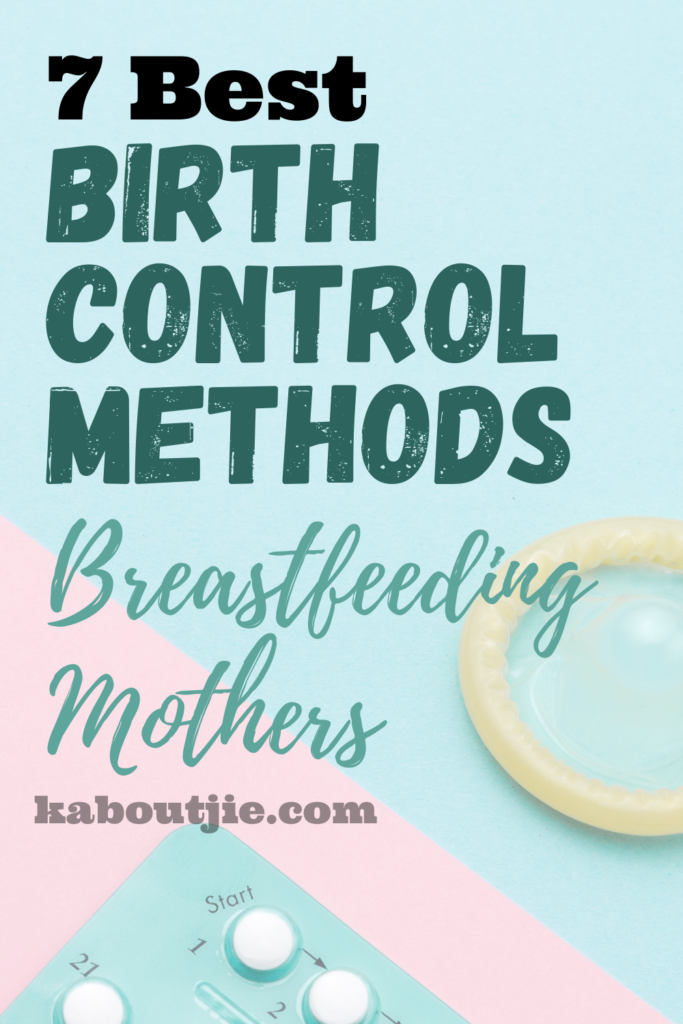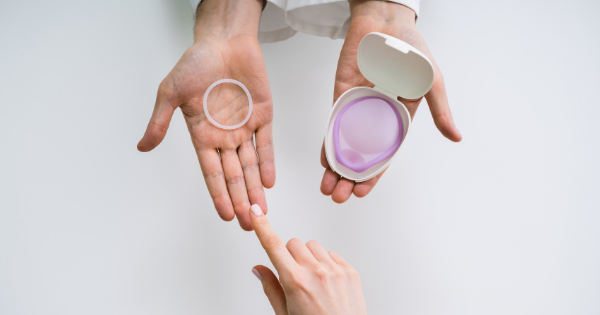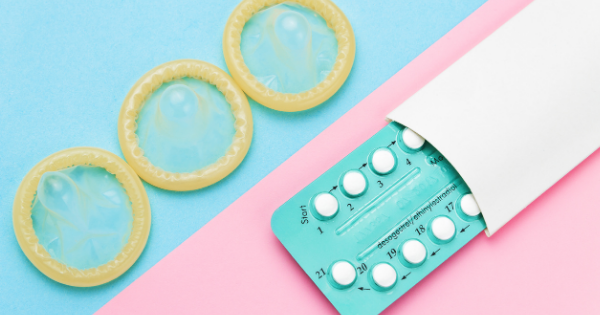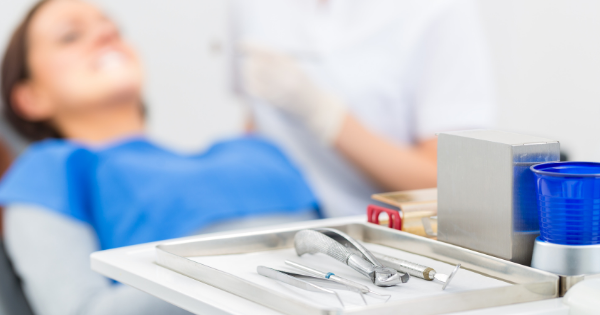Some moms might be under the impression that nursing alone is effective birth control, however, this is not entirely true. In this post we will be sharing best birth control breastfeeding options, that you might not know about.
Breastfeeding does lower the probability of conceiving if you are nursing exclusively. Keep in mind that this option is only reliable for a period of six months after having a baby.
For it to work though, you must feed your new-born at least every four hours during the day and another six hours during night-time without offering supplements. Your baby must feed only on your breastmilk.
The risk of falling pregnant does exist since you must ovulate first, and if you do not conceive your first period must arrive two weeks after. The problem is that you may not know if you are ovulating. If your period has arrived, this option is not effective.
Here are seven birth control alternatives to consider. However, when contraceptives contain estrogen, it can result in reduced milk supply in nursing mothers.

Best Birth Control Breastfeeding Mothers Use
IUD
IUDs (Intrauterine devices have as success rate of more than ninety-nine percent, therefore, are thought of as the most efficient choice in birth control available. IUDs are a long-lasting reversible choice of contraception.
Two types of IUDs:
- Non -hormonal
- Hormonal
Both kinds necessitate a prescription.
Available hormone IUD options:
- Kyleena – Up to five years protection.
- Mirena – Up to five years protection.
- Liletta – Up to three years protection.
- Skyla – Up to three years protection.
A T-shaped apparatus is inserted into the uterus by a healthcare professional to avoid fertilization. You will have a greater risk of infection due to a foreign device being inserted. This type of birth control is a suitable option for women that have more than one sexual partner. This birth control option can make periods lighter and, in some cases, you might stop having your period completely.
Non-hormonal IUD:
The only non-hormonal IUD available is Paragard, which is a copper IUD. It offers up to ten years protection. This type of IUD is not a good choice for women who have heavy periods accompanied by cramping.
Downside of having an IUD inserted
An IUD can be inserted straightaway after giving birth; however, it is recommended to speak to your doctor first. Many healthcare professionals prefer waiting until you have healed, and postpartum bleeding stopped (usually two to six weeks). If the IUD is inserted too soon after delivery, it may become dislodged and pose a higher risk of infection.
Possible side-effects after IUD insertion:
- Erratic or heavy bleeding.
- Spotting between your periods.
The IUD can be removed if you decide on having kids again.
Barrier contraceptive options
Barrier options impede sperm from passing into the uterus and fertilizing an egg. There are different OTC barrier options available. All can be started after giving birth.
Condoms
You have various choices to choose from:
- Lubricated or non-lubricated condoms.
- Female or male.
- Non-latex or latex.
- Spermicidal.
Condoms is the only barrier contraceptive that can be used as protection against STIs. They are ninety-eight effective when used correctly (wearing one each time from beginning to finishing). There must not be any genital contact prior to putting on a condom. The condom must stay in place and intact during sex. For optimal protection, you can use condoms in conjunction with alternative barrier types.

Diaphragm, sponge, or cap
Diaphragm – A tiny silicone cup which is inserted inside the vagina two hours prior to having sex. It usually covers the cervix, preventing sperm from entering the uterus. The diaphragm must be inserted by a doctor and refitted after giving birth since the cervix changes. This type of contraceptive is approximately sixty percent effective for women who have already delivered a baby. Spermicide must always be used with a diaphragm.
Sponge – made from polyurethane foam which is placed inside the vagina. The sponge prevents sperm from going inside the uterus and is eighty-eight percent effective with standard use, but it might be less effective for those who had a baby. Not only does the sponge act as a barrier contraceptive, but also contain substances that immobilizes and kills sperm. The sponge must be worn until six hours after having sex, but not left in more than twenty-four hours.
Cervical cap – Can be inserted inside the vagina six hours prior to having sex. This contraceptive is between seventy-one and eighty-six percent effective. A prescription from a doctor is needed for the right size to be fitted. If you had one inserted before getting pregnant, you must have it refitted because the cervix changes during pregnancy and after giving birth. A cervical cap must be utilized with a spermicide to be effective.

Mini pill
Standard birth control pills contain both progastrin and estrogen which could lead to reduced milk supply, subsequently a short period of nursing. Estrogen is though of as the main reason for this.
If you prefer taking oral contraception, the best option would be the mini pill. This pill only contains progestin and not estrogen, deemed a suitable choice for nursing moms. The pill must typically be bought with a doctor’s prescription, however, in certain states it is available as an over the counter option.
Because of the progestin-content in a twenty-eight-pill container, you might not have your period every month and in some cases, infrequent bleeding and spotting are side effects while your body is adjusting. As the case is with most contraceptives, you can begin using it six to eight weeks after giving birth and has an eighty-seven to ninety-nine-point seven percent success rate.
Possible side effects of taking the mini pill
The pill must be taken every day at a consistent interval to keep hormone levels consistent. Some side effects include infrequent bleeding, lessened libido, ovarian cysts, and infrequent bleeding. If you choose to conceive again after taking the mini pill, consult with your physician.
For some women fertility might return shortly after they stop taking the pill, but for others it may take several months. Numerous moms experience a decrease in milk supply while taking hormonal contraceptives. To boost milk supply, you must nurse more frequently and express after every feed for at least a few weeks after you began taking the mini pill. If your milk supply does not improve, you may consult with a lactation specialist for guidance on how to boost milk supply again.
Depo-Provera shot
This type of contraceptive is a long-term solution and uses progestin to prevent conception. The injection lasts three months, therefore you will have to attend four appointments yearly. The injection is about ninety-seven percent efficient and those who attend their appointments on time, have an increased success rate than those who miss an appointment or do not stick to their schedule.
Possible side effects of the Depo-Provera shot include weight gain, abdominal pain, and headaches. Some women also suffer a decline in bone loss when using this kind of contraception. If you want to have kids again in future, keep in mind, it takes about ten months, or longer for you to become fertile again after discontinuing the injection.
Implant
Nexplanon, the birth control implant is over ninety-nine percent efficient and can only be done with a doctor’s prescription. The tiny, rod-shape apparatus is about as big as a matchstick and is inserted underneath your skin on the upper arm. Once inserted, it can help prevent conception up to four years.
Implants contain progestin which prevents the ovaries from discharging eggs. It also assists with thickening your cervical mucus, preventing sperm from getting to the egg. The implant can be inserted shortly after delivery and can be removed if you decide on getting pregnant again. Complications with Nexplanon does not happen often, but if you experience any of the following, you should notify your doctor.
- Persistent arm pain that does not go away.
- Unusual excessive vaginal bleeding.
- Symptoms of infection, like chills or fever.

Sterilization
If you are certain that you do not want to fall pregnant again, sterilization might be perfect for you. Female sterilization is known by different names, including “having your tubes tied”, tubal ligation, or tubal sterilization. This form of birth control is permanent. Your fallopian tubes are blocked or cut to prevent you from falling pregnant again.
This form of contraception does not impact your menstrual cycle and some women opt for having this procedure done shortly after C-section delivery or vaginal birth. The risks linked to tubal sterilization are similar to those after any major abdominal surgery, which are abdominal pain, anesthesia, and infection.
A lactation specialist or physician is the best resource for evaluating when it is safe to return to breastfeeding after having surgery and taking painkillers. You can also opt for non-surgical sterilization; however, it takes about three months to be start being effective. Tubal ligation starts working instantaneously. It is possible to reverse tubal sterilization, but the odds of conceiving are low. You must only consider this form of contraception when you are certain you do not want any more children.

Natural family planning (NFP)
NFP is also referred to as the fertility awareness method. No hormones are involved; however, it does include some attention to specifics. There are different methods for approaching NFP, but it all boils down to paying attention to bodily signals. For instance, you need to check your body’s natural rhythms and the length of your cycle.
For many, it lasts between 26 and 32 days. After that, you will start noticing cervical mucus exiting your vagina. You might also have to take your basal body temperature every morning, using a specialised thermometer. This will assist you with noticing dips or spikes in temperature which can indicate ovulation.
It is often difficult to envisage when fertility returns after giving birth. Many women do not have their period until they began ovulating again. The initial few periods might be infrequent and dissimilar to what you are accustomed to.
If this is your preferred method of contraception, you must first become knowledgeable about what it entails and be diligent when monitoring mucous, symptoms, the calendar, and your body temperatures. The efficiency of natural planning method is in the region of seventy-six percent, or lower if you are not doing this method diligently and consistently.
NFP is not a suitable choice for women with infrequent menstrual cycles. Your period might also be erratic when nursing, therefore you must think about using a backup contraception like a cervical cap, diaphragm, or condoms.
Can I take the morning after pill when breastfeeding?
If you suspect your contraception has failed, you can take the morning-pill when nursing. However, you must only take it as a last resort and not your frequent choice of birth control. You can get it as an over-the-counter purchase or at a lower cost via prescription. There are two forms of the morning-after pill. The one contains both progestin and estrogen while the other one only contains progestin. The one that only contains progestin has a success rate of eighty-eight percent and does not work as efficient as the combination form which is seventy-five percent.
Progestin-only pills are:
- My Way
- Plan B One-step
- Next choice one dose
- Take action
Even though progestin-only options are the preferred choice, taking the combination pill will not have an ongoing effect on your breastmilk supply. There might only be a fleeting dip, after which it should go back to normal.
Conclusion
We hope you have found our post about the best birth control breastfeeding options helpful and will consider each option carefully and speak to your physician before deciding which one would be most suitable for you. There are various types of birth control options available to you when you are a nursing mom. Every woman is different and what may work well for the one, might not be a good fit for another. It is a good idea to consult with a lactation specialist or your physician before making a decision that might affect your milk supply.
 Kaboutjie SA Mommy Blogs by Lynne Huysamen
Kaboutjie SA Mommy Blogs by Lynne Huysamen





Great article
After giving birth I used the mini pill triphasil it reduced my milk supply then I changed to hyan pill for breastfeeding women my milk supply returned
I was on the 3 month depo shot, it made me so sick, absolutely hate hormonal contraception. Great article though
I was on the 3 month depo in my late teens and early twenties, then I had a really bad reaction to it and bled for months on end. The contraceptive injection is not something I would ever choose again.
Thank you so much a very informative article!
I will be having my csection in next week and will be steralised immediately thereafter.
Some have said to wait it out until my organs shift back into position and my wound has healed.
Great article. I never knew other forms of birth control were available besides the pill.
I am using implant and is very good so far since I put it this month January but any way great article very informative.
I have the iud in and my periods is coming regular then before so I am happy with it no side effects
Great advise and I’ve been looking for which method to use after giving birth. Implant has been good to me in the past and I will probably go back to it
Wow. This gave me so much clarity. This year is the first time that I have been put on the depo shot after giving birth and now it makes sense that I have been gaining weight like I do. Argh, want to kick myself. I have been on the petogen shot for years and never had any issues with it. No weight gain etc was so easy to lose weight while being on it. Now I know that I have to go back on to my old faithful because wow, have I gained weight and it’s so unusual for me to be gaining like this.
Thank you
The best birth control for me was abstaining, because I had depo and I was sick all the time, tried pills thinking it would better, But nothing. I am yet to find a best suitable for me
Wow thank you for this it will most certainly help alot of mums.